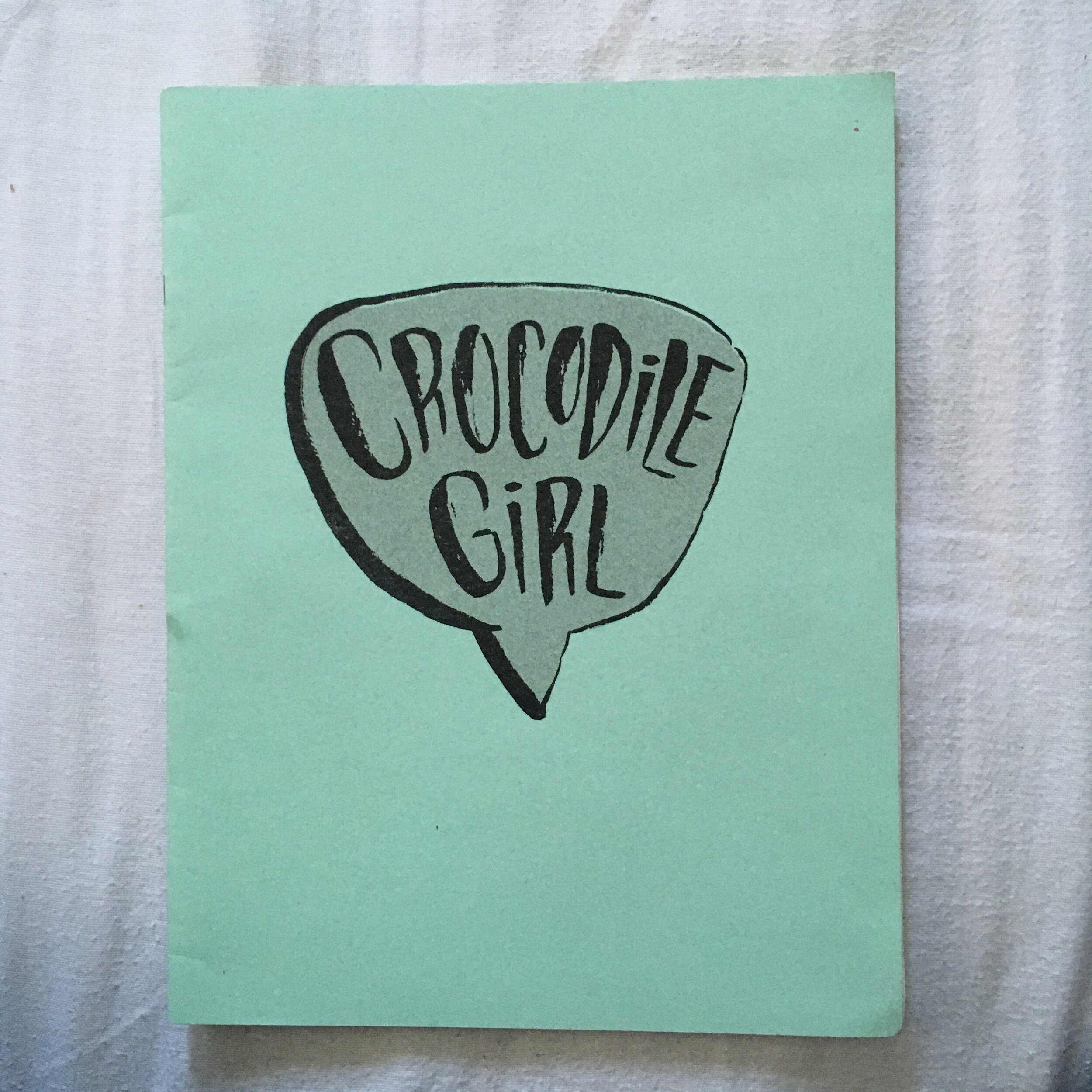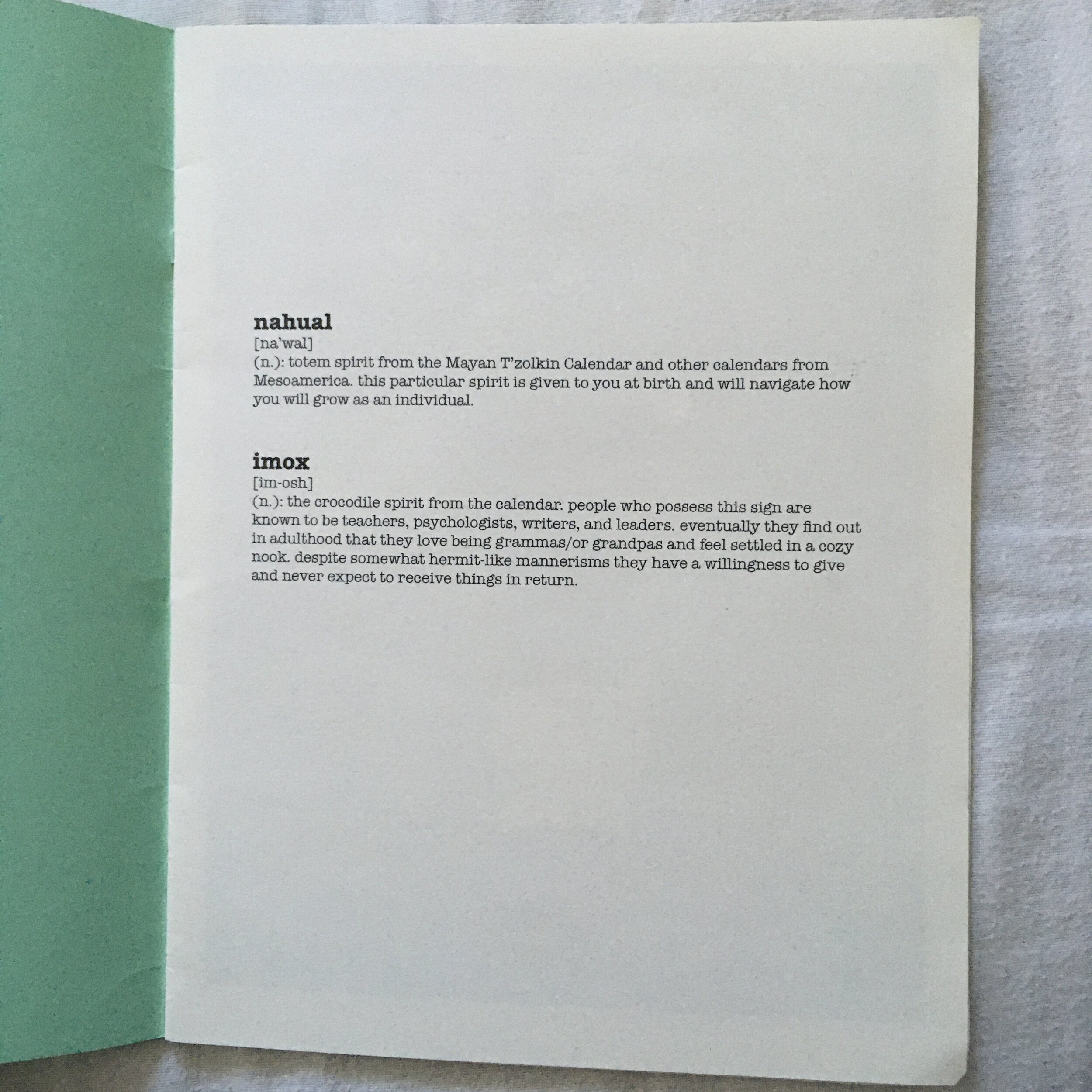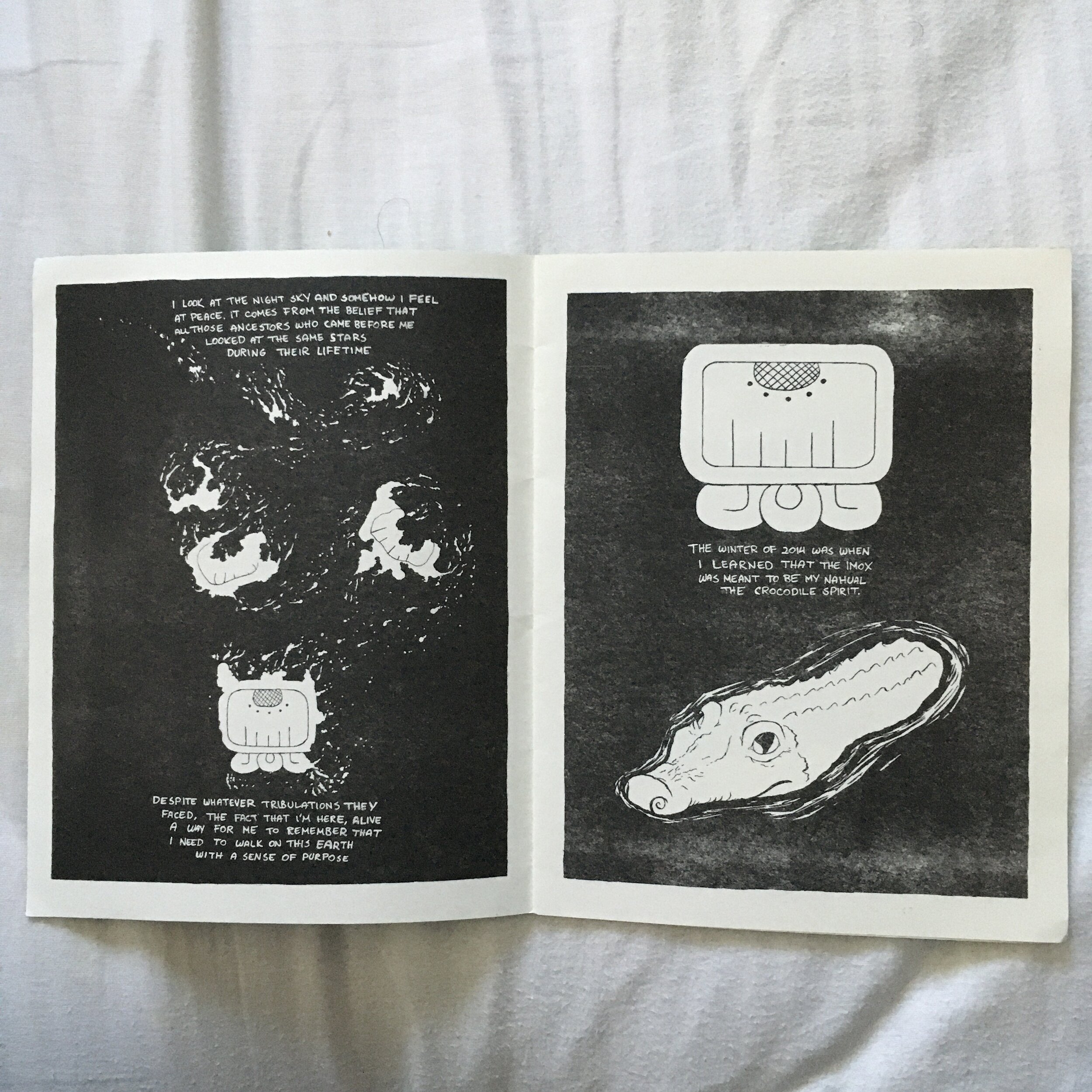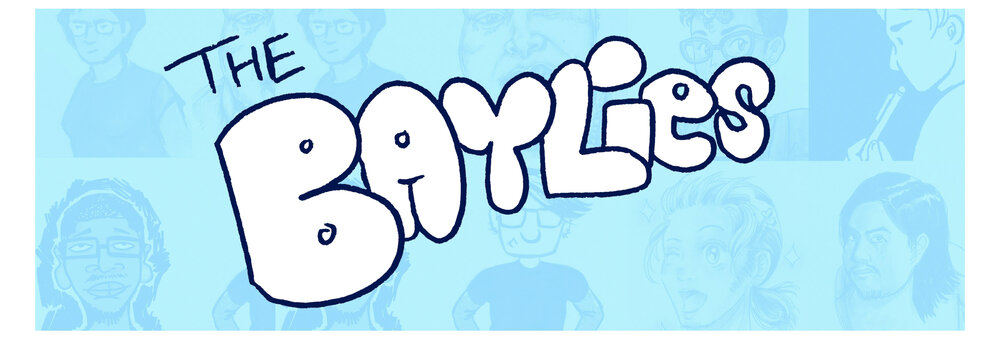I met Breena in 2015 at EBABZ in Berkeley, CA. We didn’t trade zines or comics that day, but I do remember getting a small glimpse of their work and being intrigued. Fast forward to 2016 and we would reconnect at SF Zine Fest and trade with each other. I got a copy of their Colocha Head Zine and remember how unique it was. Fast forward again to 2017 and that was the first time I was introduced to their comics work. I got a copy of their Crocodile Girl comic and was blown away.
CROCODILE GIRL 2017



It was printed by Tiny Splendor and I remember thinking, damn Breena can really draw!
Fast forward to 2020 and Breena is a professor at 2 universities teaching classes based on Race and Comics, in The New Yorker, The Nib and in the Eisner Winning Comics Anthology Drawing Power. For the past 3 years Breena has been on multiple comics panels, featured in anthologies, special guest and is still making zine and mini comics.
New Yorker DAILY SHOUTS 2020
THE NIB 2020
INTERVIEW WITH Breena Nuñez 2020
Are you from the Bay Area or did you move here?
B: I'm from the Bay Area, I'm first generation or first and a half generation Afro Central American because both my parents migrated to the U.S. at different periods in their life.
Where in the Bay are you from?
B: Generally I'm from different parts of the Bay because my family moved around throughout my youth, so I never really felt like I settled down anywhere. I was born in San Francisco, but raised in the Peninsula and within that area we bounced around from San Bruno, Daly City, South San Francisco, and Millbrae. Then I jumped across the Bridge and moved to Oakland after being able to afford to live on my own, but for a while I felt like Oakland adopted me for a bit since I still made that drive from San Bruno to the Town to hangout with my chosen fam.
When did you start making comics?
B: Maybe think around... 2016? Before that year I made very few comics and honestly didn't have any confidence in the art form, despite how much I loved collecting and reading comics. After graduating SFSU in 2012 I used a lot of that time to explore my illustration/cartooning style because I thought that I was more of an illustrator than anything else. But years later I began to see more cartoonists of color generating stories I've always wanted to see more of, which are memoirs about understanding what it means to be a migrant or a person of color living in the United States.
How has your progression of your cartooning and educational career impacted your life?
B: I feel that now I can confidently say that I am a cartoonist and a college professor without skipping a beat. Because after college I didn't know where I exactly fit in within the social movement. Back when I was a Clínica Martín-Baró student volunteer I always imagined myself doing the medicine work that my friends continued doing after college, but how would I do that as an artist? I can't measure people's pulses to save my life! But I realize now that that spirit of advocating for community and for challenging the status quo was in my process all these years, and that the work we do as cartoonists is absolutely medicine work.
How have you grown since your earlier comics?
B: I think my growth has arrived in a way where I can feel more confident in the process. My current cartooning style comes naturally to me and I hear that my work emulates the way I even have conversations with you (Lawrence), with others, or with myself. Even though I'm a comics teacher I still perceive myself as a student because there's always room for growth, I also don't know completely everything that there is to know about comics... all I know is that it's a language that I enjoy speaking in.
What are some of your most memorable moments of your career so far?
B: Especially during this pandemic I realize how much I miss being in community through zine fests and comic shows. I love how these shows gave me the opportunity to build friendships that mean so much to me, and that it would eventually lead to a marriage proposal that took the form of a zine. (huhuhuhuhuuuu~)
What is different about The Bay Area comics scene compared to other places you have been?
B: It's sort of hard for me to describe the Bay without referencing how passionate people are about its culture of social activism and racial justice. It's also a place where I feel like BIPOC artists have made their own comics as a reaction to the lack of visibility we've seen in mainstream comics. If it weren't for seeing comics by Jaime Crespo, Ajuan Mance, or Thi Bui I wouldn't have had the courage to realize that I can actually make my own stories, print them, share them at a zine fest or an indie comic expo.
Any comics recommendations?
B: Anything that you'd see at a zine fest, it's where I feel like you'll have more access to the most genuine and unedited stories.
Any cartoon/tv shows or movie recommendations?
B: I love rewatching Pom Poko (especially during the BLM movement) and a majority of the Ghibli movies while I'm working on drawing and inking.
What influences your work?
B: My younger self because I think she had a lot of things to say but didn't always know how to express them. Memoir and slice of life comics by Jaime Crespo, Ness Garza, Yeon Sik-Hong, Tillie Walden, and Jillian Tamaki.
What do you want to do in comics in the next 5 years?
B: I hope to publish graphic novels (memoir and more poetry/experimental comics), continuing making zines at home and actually start doing a rom-com comic with my animal people characters. When this pandemic isn't wildin out I'd love to travel outside of the U.S. to work on comics and attend other zine or comic festivals.
What are you working on now?
B: Figuring out how to teach comics and zines for online classes since I'm a n00b at this. I'm also collaborating with Anand Vedawala on a children's book while I just generally cookup new ideas for graphic novels that need to be transferred onto paper, haha! In between projects I do Quarantine Diaries as a way to vent and archive how life has been like these days.
What does your work represent to you?
B: It's work that tries to reconcile with my past and how much I want to show love for Afrolatinxs and black people within the diaspora who've been told to not embrace their blackness or their gender identity. My hope is that even more BIPOC folks come out with their own comics and change the way we normalize comics.
Breena’s Comics For The BAYlies (2018)
Thank you to Breena for doing this interview. It’s important for me as someone who is here right now to not only archive and document comics history, but to shine light on what has been and still is here. Breena is continuing the tradition of folx using their voice to change the world and uplift the youth and people.
Please Check out their work
Peace and love
-Lawrence




